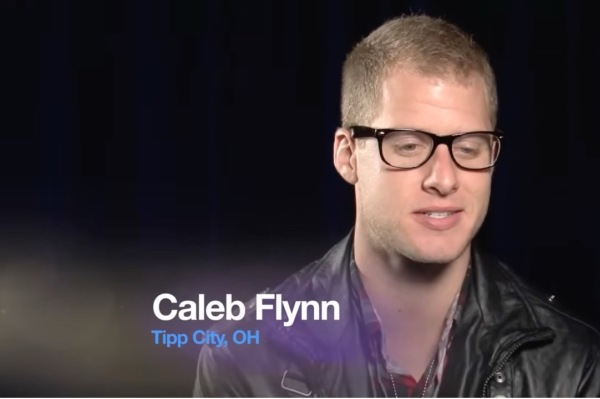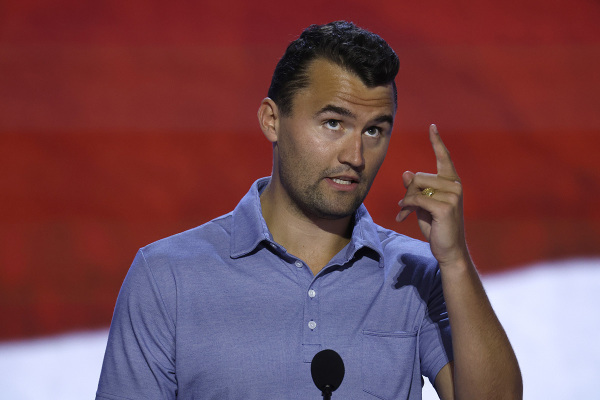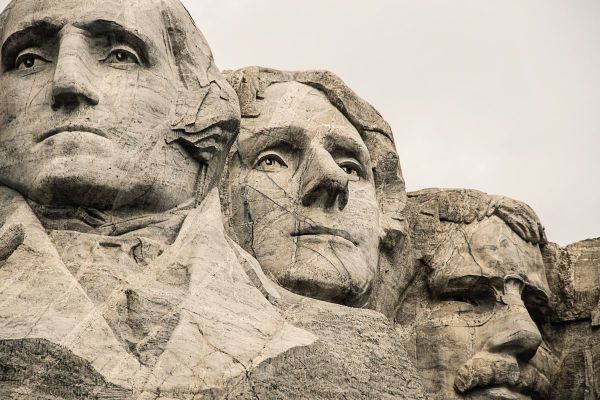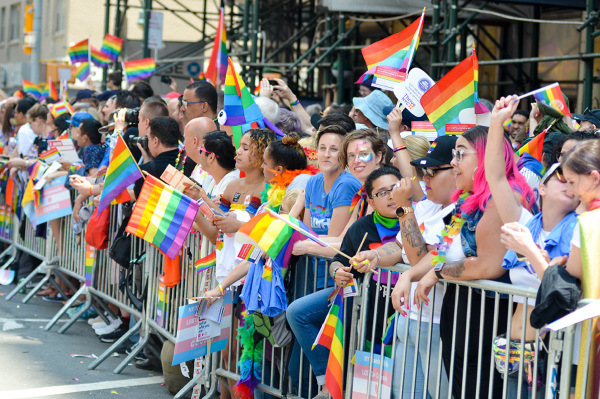Ask Dr. Land: How should Christians respond to the coronavirus pandemic?
Question: The coronavirus global epidemic has changed every aspect of people's lives around the world: workplace, social, financial, religious, etc. Do you have any advice on what perspective Christians should have amid this chaos and uncertainty?
I do not believe I have been asked any question more frequently in the past fortnight than this one. As Christians and as Americans, we are facing a crisis none of us are old enough to have experienced previously. What are our obligations and responsibilities as disciples of Jesus?
First, as Christ-followers we need to remember that our Heavenly Father is “a refuge and strength, a very present help in time of trouble” (Ps. 46:1). We should not panic. Our Heavenly Father is still the all-knowing, ever-present, omnipotent God.
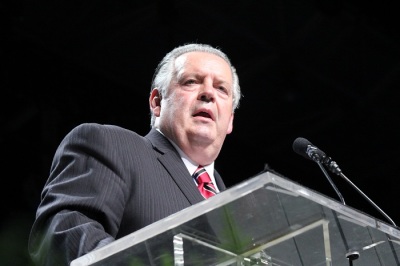
Panic and pessimism should be alien emotions to believers whose Lord has promised “I will never leave thee, nor forsake thee” (Heb. 13:5). After all, let’s remember that when Simon Peter kept his eyes on Jesus, he walked on the water, but when he turned to look at the storm, he began to sink and cried, “Lord, save me!” (Matt. 14:24-32).
Perhaps the best way to approach this question is to ask the question famously asked by the Rev. Charles Sheldon in his phenomenally best-selling novel In His Steps: What Would Jesus Do? (1896) at the turn of the 20th century. In His Steps became one of the best-selling novels ever written in the English language (over 50 million copies sold) and generated the enormously influential “What Would Jesus Do?” (W.W.J.D.?) movement, which experienced a powerful revival at the beginning of the present century.
The best starting point in how we move forward is to always remember and have in our hearts spiritual awareness consciousness that we are disciples of our Lord Jesus, who commanded us “to love your neighbor as yourself” (Mark 12:31) and “to do until others as you would have them do unto you” (Luke 6:31). He also said that we should render to Caesar the things that are Caesar’s (Mark 12:17). Romans 13:5 reinforces this fact that Christians are to obey the government’s law “for conscience sake” unless in conscience they cannot.
What would Jesus do? I believe He would minister to the sick, seeking to provide comfort and assistance to those coping with physical, emotional, and economic aftermath of having the virus or having lost a loved one to it. If the projections about the percentage of the population which may become infected are even remotely accurate, then there will be manifold opportunities to be of assistance to our neighbors and their families even at risk to ourselves. That is certainly what Jesus would do.
Also, I don’t believe Jesus would put anyone else at needless risk. I believe Jesus would recommend that His disciples heed the government directives concerning the best medical practices to prevent the spread of this virus. In fact, if we as Christians assume that as believers we can disregard sound medical advice and engage in inherently risky behavior, presuming that God will still protect us, we are committing the sin of presumption. Jesus Himself warned against this particular sin. When confronted by the Devil with this sin in the wilderness, Jesus replied, “Thou shalt not tempt the Lord thy God” (Matthew 4:7). If the health authorities recommend no meeting of more than ten people, is it presumption for churches to disregard these directives and assemble in person rather than through streaming online or in meeting in smaller house meetings like the early church? I fear that it indeed would be.
As Christ’s disciples we need to follow His command to pray for all of those who are in authority, that God will give them wisdom, guidance, and protection as they seek to fulfill their divinely ordained assignment to protect the citizenry (Rom. 13:1-7).
And, as Christians we need to pray for each other as Jesus fervently prayed for us (John 17). We especially need to lift up our Christian leaders, praying that God will give them a special “holy boldness” to manifest the love of Christ to an anxious nation that has been shaken out of its complacency and is looking for assurance, meaning, and purpose with a new sense of attention and urgency.
In the past few days, I believe, all of us have sensed that something important has changed in American society. For tens of millions of Americans the terms Republican, Democrat, and Independent have receded into the background, and we are sensing a nonpartisan coming together in the midst of crisis in the way my parents told me we came together as one people in the aftermath of Pearl Harbor
I am imploring God that he will give us the spiritual wisdom to be “redeeming the time” (Eph. 5:16) and use us in this extraordinary and propitious moment to win eternal victories in the lives and eternal destinies of our fellow citizens. The pastor of my home church, Dr. Jason Cruise, sent out a video a few days ago that greatly challenged me in this regard, and I hope it will challenge you as well.
Jesus called us to be His ambassadors of reconciliation in word and in deed (2 Cor. 5:19-20). Christians should pray that when the country looks back on this crisis, our fellow Americans will see this chapter in our history as one that reflects great credit on the Lord we serve.
For instance, I cannot help but think how different the last four decades of our nation’s cultural and spiritual history would have been if Christians had done “what Jesus would do” and we had volunteered in overwhelming numbers at AIDS hospices to aid and comfort the tragic victims of that epidemic, modeling the transforming love of Jesus before a watching world.
With our Lord’s help, let us not fail to do our Christian duty this time.
To God be the glory!
Dr. Richard Land, BA (magna cum laude), Princeton; D.Phil. Oxford; and Th.M., New Orleans Baptist Theological Seminary, was president of the Southern Baptists’ Ethics & Religious Liberty Commission (1988-2013) and has served since 2013 as president of Southern Evangelical Seminary in Charlotte, NC. Dr. Land has been teaching, writing, and speaking on moral and ethical issues for the last half century in addition to pastoring several churches.










